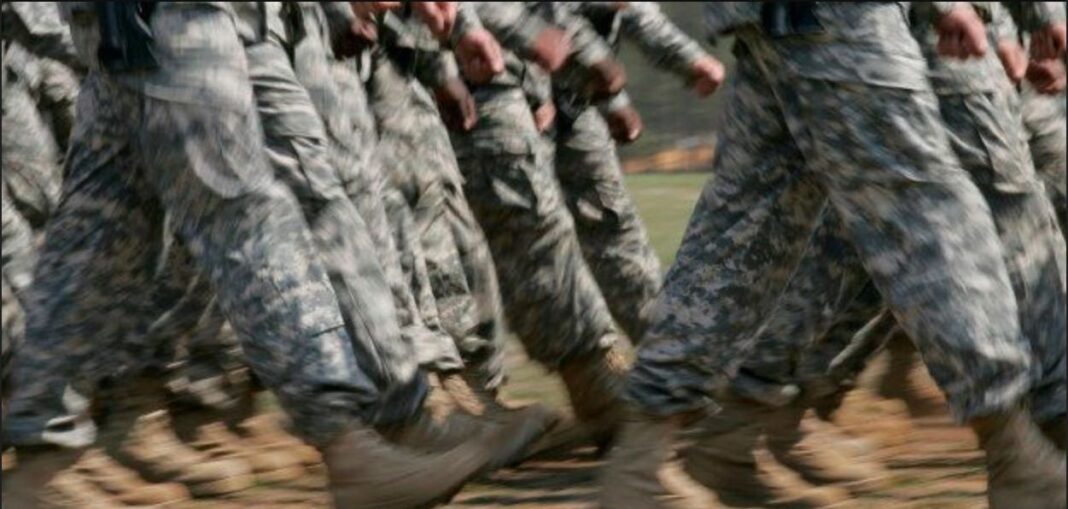When we think about warfare, we often visualize uniformed soldiers, patriotically serving their country. Rarely do we consider the shadowy figures operating behind the scenes: the private security contractors – or mercenaries – who fight and die in our name. Their presence is a quiet, ominous truth, one that has been, until now, conveniently overlooked by the American government.
Yevgeny Prigozhin’s Wagner Group, a private army conducting significant portions of Vladimir Putin’s war in Ukraine, is a known entity. They recruit from Russia’s prison system, offering convicts a brutal chance at “freedom” on the frontlines. Unlike the Russian government’s blatant alliance with Wagner, America’s private war force operates under a cloak of invisibility.
A History of Hidden Soldiers
The concept of private contractors isn’t new. From the Civil War, through both World Wars, the Korean and Vietnam Wars, and up to the first Gulf War, private contractors have always been with us. What’s new, however, is the scale of their involvement. In our modern wars, contractors play a more significant role, with an estimated 10%-20% directly involved in combat and intelligence operations.
These private soldiers have committed horrific abuses but also acted bravely under fire. From the torture at Abu Ghraib prison in Iraq to the indiscriminate firing on Iraqi civilians by employees of the private security firm Blackwater, their actions have been both abhorrent and admirable.
Contractors have killed Afghans and helped some escape Taliban rule. Their involvement allows Washington to continue its operations around the globe, even as many Americans believe our war on terror has ended.
The Ignorance of War’s Reality
Few Americans realize the extent of our ongoing conflicts in Iraq and other regions. The reason for this ignorance? Our troops are no longer dying in significant numbers, and fewer veterans are crowding the waitlists at backlogged Veterans Affairs hospitals.
The heavy burden of war has been shifted to these private contractors.
Also Read: Government Propaganda Exposed: How You’re Being Manipulated by Clever Storytelling!
At certain points in our war on terror, we’ve utilized more civilian contractors than uniformed military personnel. As of 2019, according to Brown University’s Costs of War Project, there were 50% more contractors than troops in the U.S.
Central Command region, which includes Afghanistan, Iraq, and 18 other countries. The Pentagon, as of December 2022, had about 22,000 contractors deployed throughout that region, with nearly 8,000 concentrated in Iraq and Syria.
The Pandemic’s Impact on War Privatization
The Covid-19 pandemic has accelerated this trend of war privatization. As the public began questioning the resources spent on war instead of healthcare, the U.S. increased its reliance on contractors, remote drones, CIA paramilitaries, and local forces. Thus, during the pandemic, Washington placed the dirty work of war in corporate and foreign hands.
Tracking private security contractors is a difficult task, largely because our government fails to count them accurately. Although the Defense Department keeps records of civilian contractors, it excludes those contracted with the Central Intelligence Agency or the State Department.

The Hidden Casualties of War
When Costs of War first tried to count contractor deaths, we fell short. Only after incorporating reported war deaths among foreign nationals working for the Pentagon did we estimate that 8,000 contractors had died in our Middle East wars as of 2019. That’s about 1,000 more deaths than U.S. troops during the same period.
The path to security contracting reflects a deep cultural divide in our society between military and civilian life. Despite veteran unemployment rates being marginally lower than those in the civilian population, many veterans end up in positions related to military training, staffing, weapons production, or combat.
Contracting is a demanding job, often involving quick, successive combat deployments. What’s worse, private insurers often fail to meet their obligations under the Defense Base Act (1941), which requires corporations to fund workers’ compensation claims for their employees laboring under U.S. contracts.
The Irony of Privatized Foreign Policy
In an ironic twist, the war on terror, meant to promote democracy and the rule of law, has been prolonged and complicated by the (mis)use of security contractors. These invisible soldiers inflict damage and suffer in return in America’s name, and their global presence often dictates our response to threats.
Private contractors are now an essential part of America’s increasingly privatized wars and will continue to be so, in seemingly ever greater numbers. As citizens, we must bear witness to war casualties in all their grim diversity.
Because how can we know whether — and for whom — our shadowy, shape-shifting wars “work” if we continue to let our leaders wage an increasingly privatized version of them in ways meant to obscure our view of the carnage they’ve caused?
Our invisible army deserves recognition. It’s time to shine a light on the private soldiers who fight and die in America’s name.




